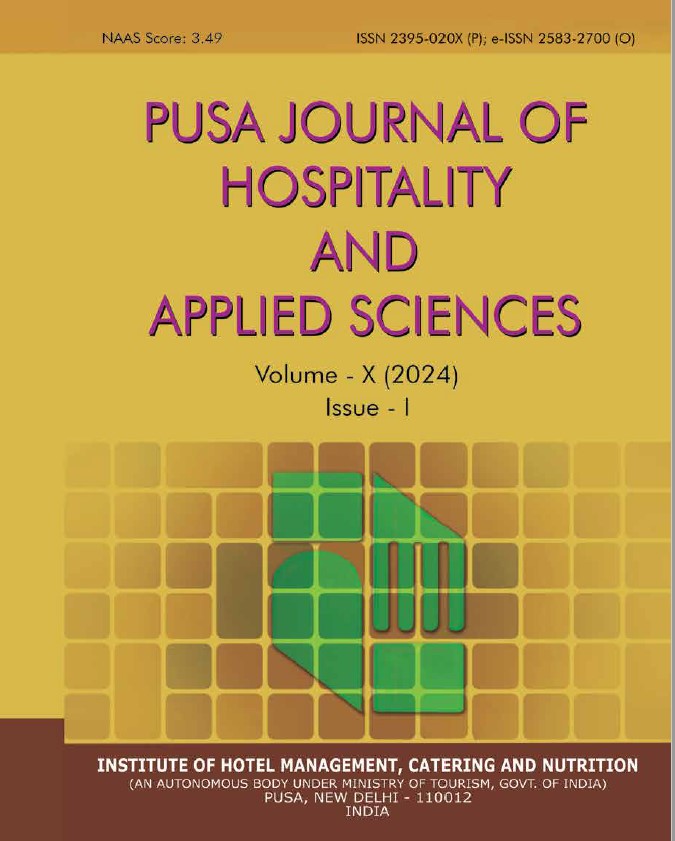An Empirical Study On The Academic Perception Towards Certified Learning Facilitator (Clf) Training Program At Nchmct
Keywords:
Certified Learning Facilitator (CLF), hospitality education, industry needs, hospitality curriculumAbstract
Background: Indian hospitality industry is witnessing an exponential growth. The industry has recorded a double digit growth of more than double digits percentage figure in terms of revenue, from past few years and is still growing very rapidly. New major international chains are entering the expanding Indian hospitality sector and existing major national and international players are outreaching or stretching their footprints towards moderate and growing cities that are generally categorized by tier - 2 and 3. Objective: To study the key factor for an effectiveness of Certified Learning Facilitator (CLF) learning and to understand the impact of resources (Master trainer and Infrastructure) on CLF training program. Methodology: Survey method through a questionnaire was primarily used for research. A sample of 50 respondents was selected, who were the faculties of various IHM’s and who also have undergone the CLF training program. Results: Question Technique, Class Room Communication (VC; NVC), OOO Learning - Demo ; Theory and OOO Learning Practice Sessions received maximum mean as 4.64, 4.64, 4.66 and 4.64 respectively. Master Trainers were using Activities, Role plays; Communication and Approachable/ Sensitive having maximum mean as 4.88, 4.86 and 4.84 respectively. Conclusion: Certified Learning Facilitator (CLF)’ training program will help meet the current and future industry needs and expectations of the hospitality industry perspective, academia and upgrade standards of NCHM affiliated Institute of India at a global platform.
References
Aspiring minds National Employability Report For Hotel Management Graduates. (2012). Retrieved from http://www.aspiringminds.com/research-articles/study-on-employability variances-amongst-hotel-management-graduates.
Educational Institute of American Hotels and Motels Association.(1999), Certified Hospitality Educator, A leader’s Guide.
Khanna, M.K. (1990). Country paper on HRD requirement of the tourism sector in India. Retrieved from shodhganga.inflibnet.ac.in/bitstream/10603/85353/11/11_chapter%202.pdf.
Lausanne Hospitality Consulting. (2015). Pre Module Guided Reading .(PMGR).Lausanne ,Switzerland: Author.
Mayo, C.R. (2003). Essential Competencies and Critical Performance Measures Needed by Hospitality and Tourism Management Graduates. Paper presented at the Hawaii International Conference on Business, Honolulu, HI. Retrieved, April 22, 2010, from http://www.hicbusiness. org/biz2003proceedings/Cynthia%20R.%20Mayo.pdf.
Ministry of Tourism. (2016). Annual Report 2015-2016 (P16-25). Retrieved from http://tourism. gov.in/sites/default/files/annualreports/NCHMCT%20Annual%20Report%202015-16.pdf.
NCHMCT.(2018).Bachelor of Science in Hospitality and hotel Administration: JEE-2018 [Brochure].NCHMCT, Noida.
Wikipedia (2018). Retrieved (2018, February 01) from https://en.wikipedia.org/wiki/Hospitality_ industry.




